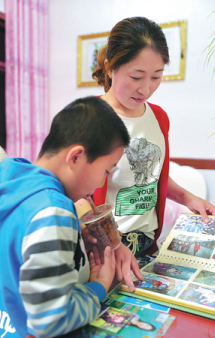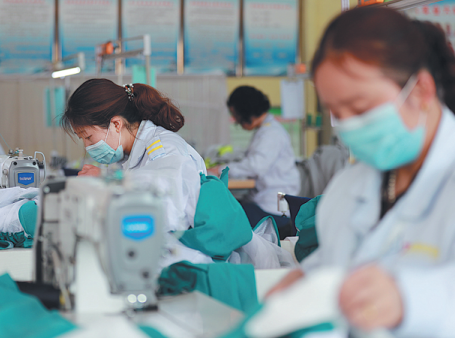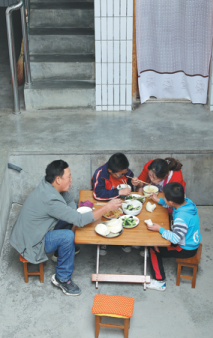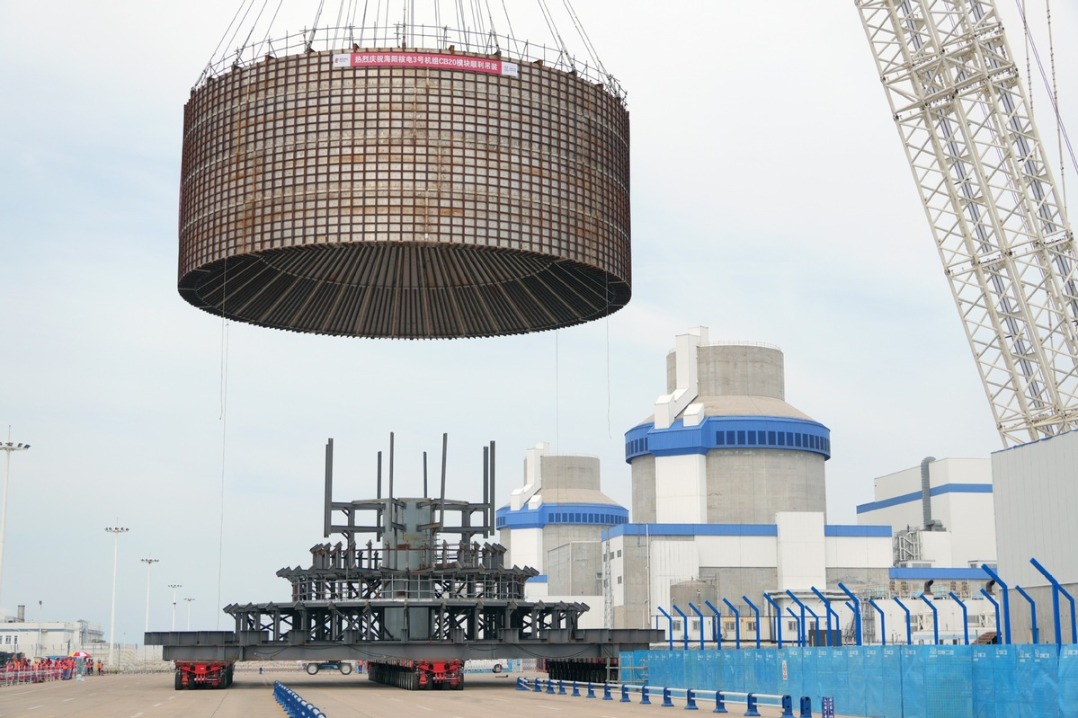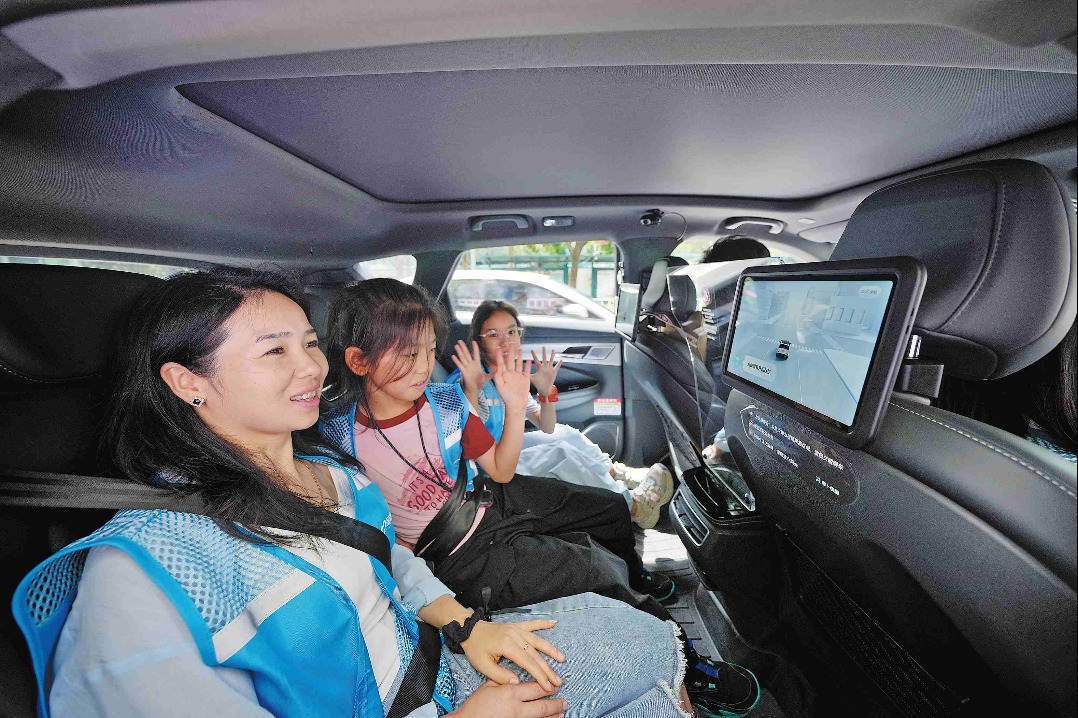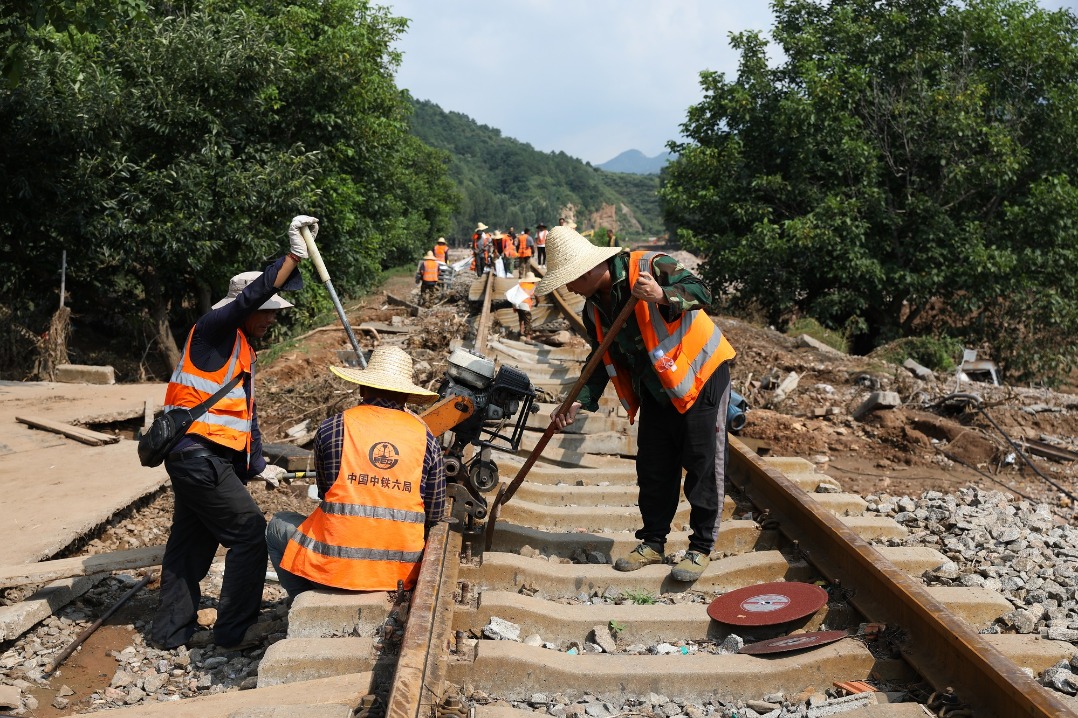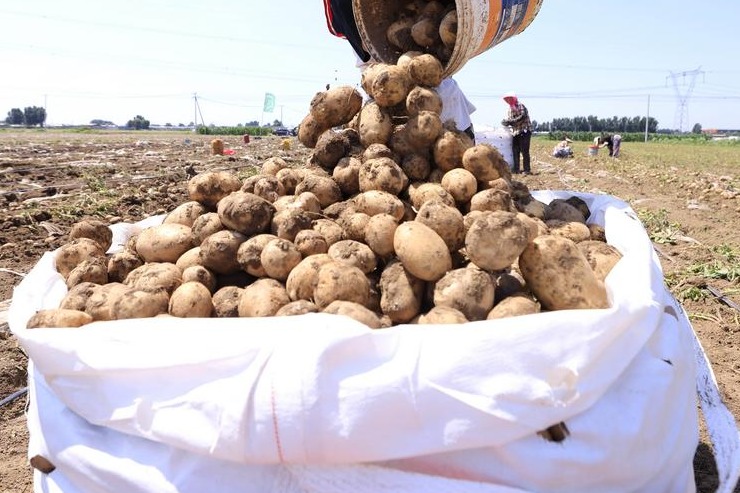Poverty alleviation gives rural families more time together

LANZHOU-On a chilly winter's night in 2008, Niu Lijuan left her home. After kissing her four-month-old baby, the 24-year-old mother with tears running down her cheeks, set out on a journey to a city about 2,400 kilometers away to look for a decent job.
"I of course preferred to stay at home with my child, but there were few factories and moneymaking opportunities in my hometown," recalls Niu, a rural resident in Gangu county, Northwest China's Gansu province. "To live a better life, I had to leave home."
Following in her footsteps one year later, Niu's husband also headed for Shenzhen, a coastal economic powerhouse in southern China. The couple were among the millions of parents who live in a poverty-stricken part of China and choose to leave their children behind and to find better paying jobs in larger cities.
In recent years, as part of China's efforts to eliminate poverty, a large number of programs have been launched in impoverished regions across the country. Many poverty alleviation programs have become new power engines for local economic growth, created jobs for the local labor force and brought parental love to the children whose parents return to take up jobs in their hometown.
In 2018, Niu became a benefactor of those poverty relief programs as she sought a job at a garment factory within a 10-minute drive from home. She can now work in her hometown while looking after her children.
"Cooking, tutoring and accompanying my son as he grows up, I will not miss any family time," says Niu.
Niu left her hometown in 2008, bound for a Shenzhen garment factory.
"I put my son's photo under my pillow. I took it out when I felt homesick," Niu recalls. "I often spoke to the photo saying I would go back home once I had made enough money."
As the days became years, the nostalgia only became more intense. During Spring Festival of 2011, Niu returned home for the holiday and noticed her son's reticence.
"He talked little and even avoided me when I approached him. At that moment, I realized that things had to change and I needed to return home to raise my child myself," Niu says.
Niu's son was not alone. As of August 2018, China had 6.97 million children left behind in rural homes by their parents working as migrants in large cities, down from 9.02 million in 2016. In Gansu province, there are still about 60,000 children left behind.
For Niu, returning home was a tough decision.
"In Shenzhen, factories are everywhere, locals can work and live with their families," she says. "I wished my hometown could be like this."
In recent years, labor-intensive industries have begun to move west due to rising labor costs and industrial upgrades in eastern coastal areas. Gansu province took the opportunity to introduce labor-intensive industries, creating huge employment opportunities for locals.
Supported by poverty alleviation policies, Gansu also opened "poverty-relief workshops" to help migrant workers work closer to home.
Niu's dream of working on her doorstep came true in 2018 when a garment factory was established in her township. Sewing skills have long been her forte and Niu immediately applied for a job in the factory.
"Those workshops enable women from rural areas to land a job near their homes, become a breadwinner, and take care of their children," says Zhang Weilin, owner of the workshop.
So far, Gangu county has established 52 such workshops in the countryside, employing over 30,000 workers, including a poor population of nearly 1,000.
Like Niu, 960 working mothers have returned from large cities to find jobs at these workshops, helping reduce the number of children left behind in the county by nearly 1,700.
"Now I can also earn a high income on my doorstep," Niu says with a smile. "More importantly, I can spend more time with my children as they grow up. It is the happiest thing."
Xinhua
